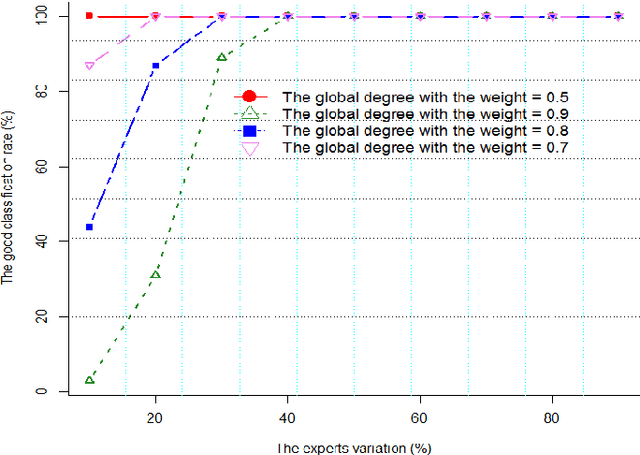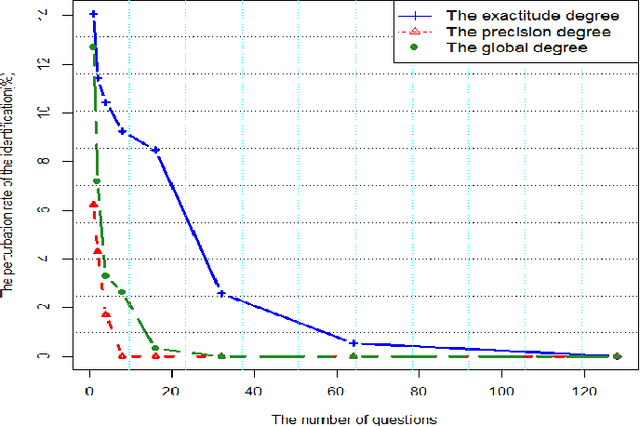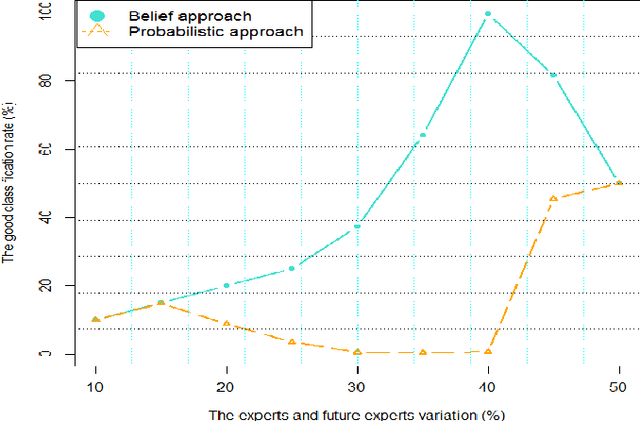Amal Ben Rjab
LARODEC, DRUID
Characterization of experts in crowdsourcing platforms
Sep 30, 2016


Abstract:Crowdsourcing platforms enable to propose simple human intelligence tasks to a large number of participants who realise these tasks. The workers often receive a small amount of money or the platforms include some other incentive mechanisms, for example they can increase the workers reputation score, if they complete the tasks correctly. We address the problem of identifying experts among participants, that is, workers, who tend to answer the questions correctly. Knowing who are the reliable workers could improve the quality of knowledge one can extract from responses. As opposed to other works in the literature, we assume that participants can give partial or incomplete responses, in case they are not sure that their answers are correct. We model such partial or incomplete responses with the help of belief functions, and we derive a measure that characterizes the expertise level of each participant. This measure is based on precise and exactitude degrees that represent two parts of the expertise level. The precision degree reflects the reliability level of the participants and the exactitude degree reflects the knowledge level of the participants. We also analyze our model through simulation and demonstrate that our richer model can lead to more reliable identification of experts.
 Add to Chrome
Add to Chrome Add to Firefox
Add to Firefox Add to Edge
Add to Edge